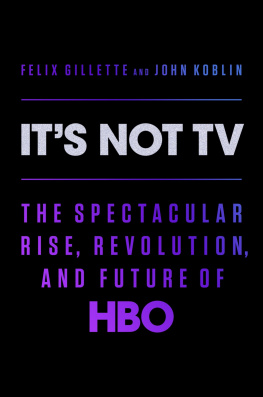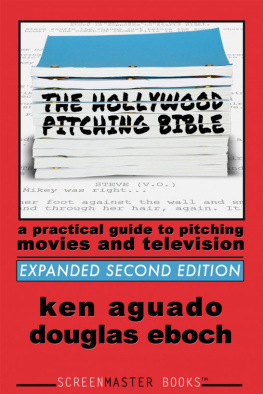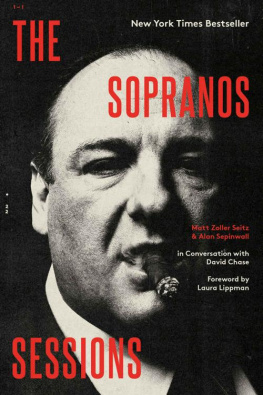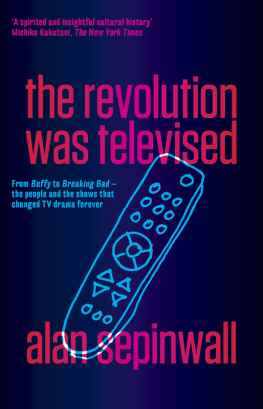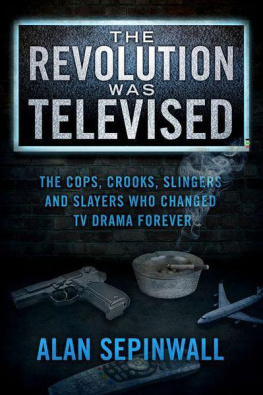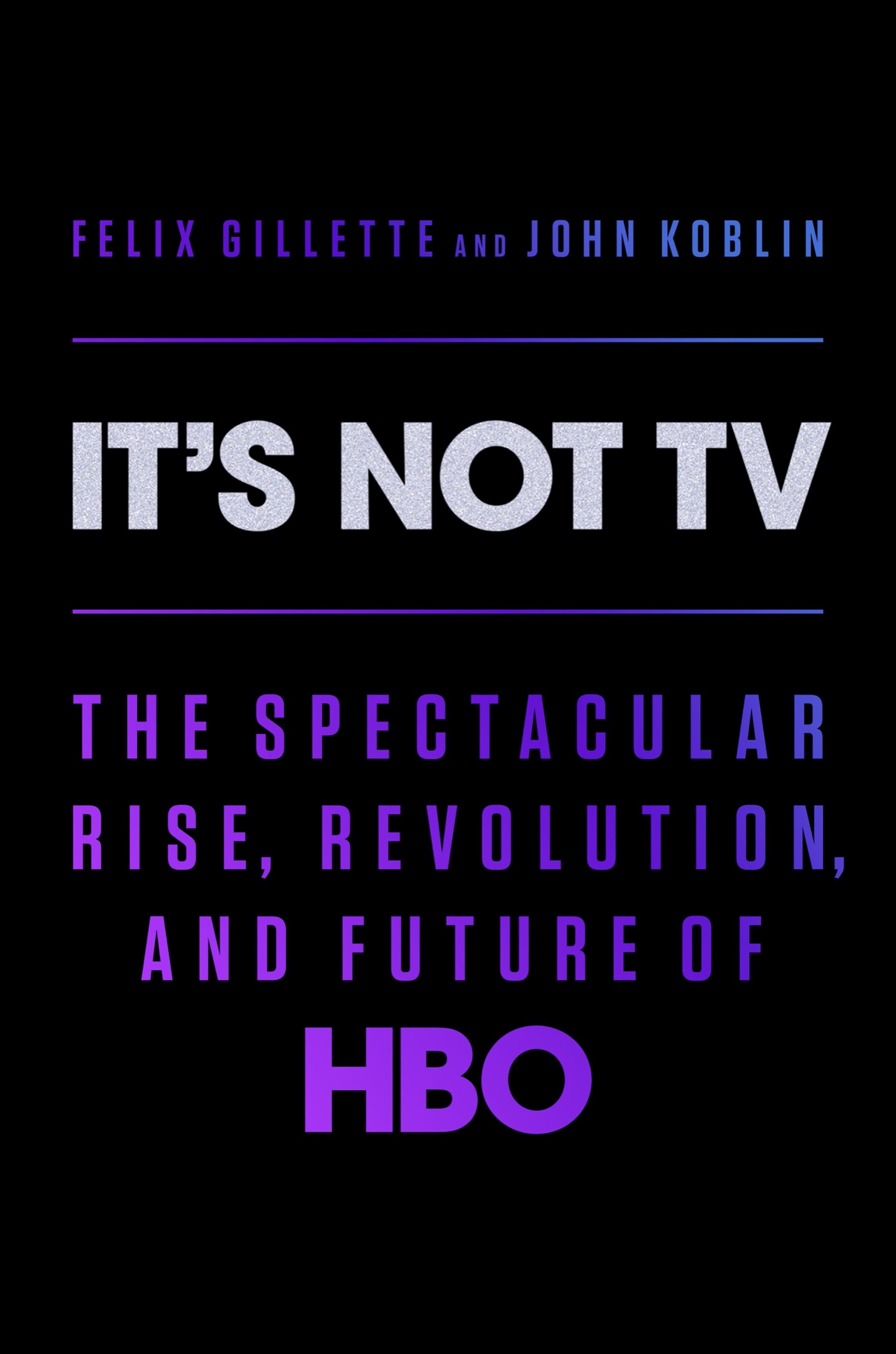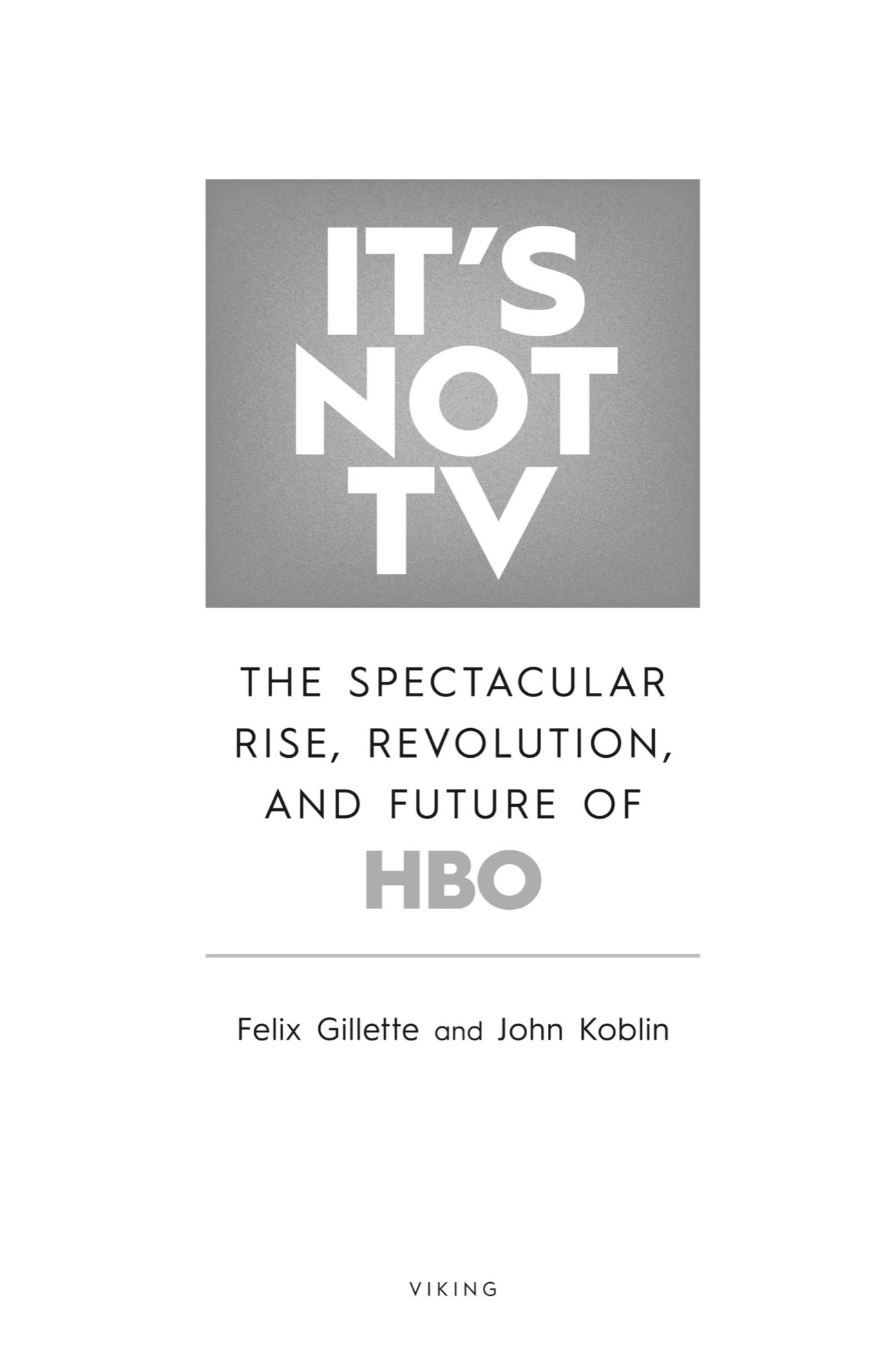Penguin Random House supports copyright. Copyright fuels creativity, encourages diverse voices, promotes free speech, and creates a vibrant culture. Thank you for buying an authorized edition of this book and for complying with copyright laws by not reproducing, scanning, or distributing any part of it in any form without permission. You are supporting writers and allowing Penguin Random House to continue to publish books for every reader.
Names: Gillette, Felix, author. | Koblin, John, author.
Felix Gillette and John Koblin.
Description: New York : Viking, [2022] | Includes bibliographical references and index.
Identifiers: LCCN 2022013252 (print) | LCCN 2022013253 (ebook) | ISBN 9780593296196 (hardcover) | ISBN 9780593296202 (ebook) | ISBN 9780593653104 (international edition)
Subjects: LCSH: Home Box Office (Firm)History.
Classification: LCC PN1992.92.H66 I86 2022 (print) | LCC PN1992.92.H66 (ebook) | DDC 302.23dc23/eng/20220405
PROLOGUE
Taking Flight
On October 1, 1975, Muhammad Ali sat in a dressing room in a sweltering coliseum in the Philippines while trainers taped his hands. In a few minutes, he would enter the ring to fight Joe Frazier for the third and final time. For weeks, Ali had been taunting Frazier in public, showing up at a press conference with a toy gorilla and saying it represented Fraziers conscience. Come on, Gorilla, we in Manila, said Ali, jabbing the primate doll in the face. Come on, Gorilla. This is a thriller.
The previous two fights had been dazzling. Frazier had won the first by unanimous decision. In the rematch, Ali had triumphed. This time, the winner would be crowned the heavyweight champion of the world.
Roughly nine thousand miles away, a giddy group of cable executives gathered around a TV inside a ballroom at the Holiday Inn in Vero Beach, Florida. The sun was down, the bar was open, and everyone was delirious to see the fightthat is, if they could see the fight. Would the technology work?
Gerald Levin, the president of HBO, a slightly rumpled man with a mop of dark hair, a caterpillar mustache, and sharp brown eyes, chatted with his colleagues in the room. What they were about to watch was more than a fight being televised live from the other side of the earth. It was the future of home entertainment. Welcome to TVs satellite age.
Among his colleagues at HBO, Levin was known as an erudite polymath. He had graduated Phi Beta Kappa from Haverford College, where he studied religion and dreamed of becoming a novelist. He possessed a wide-ranging intellect, an encyclopedic memory, and a reputation as a bit of a know-it-all.
Levin had started his career as a corporate bankruptcy lawyer in New York and then segued into consulting, hopscotching the globe. In the late 1960s, he moved to Iran to oversee the construction of a massive irrigation system. There, he came to believe that the key to business was dominating the flow of the product. In my mind, the transmission of water and power and electrons were all the same thing, he would later say. You just had to be in a position of controlling the conduit.
At the time, a major shift in how electrons flowed around the planet was on the verge of disrupting the entertainment business.
In early 1972, Levin met and befriended Charles Dolan, a convivial entrepreneur originally from Cleveland, Ohio, whose dad had invented an early prototype of the automatic car transmission. Together, they attended a convention in Chicago for the growing industry of cable television, which promised to use coaxial cables to deliver a clearer TV picture to the large swaths of the country that struggled, due to mountain ranges or similar impediments, to pick up broadcast TV signals.
Like his father, Dolan was driven to create new things. At the time, he was building out the first cable TV franchise in lower Manhattan, where certain neighborhoods, due to tall buildings, couldnt reliably get clear TV signals. The project was being financed by Time Inc., the magazine publishing company, which was going through a phase of corporate diversification.
Dolans undertaking was not going well. Laying cable in New York required navigating a complex rats nest of physical and political entanglements. Progress was slow. The operation was hemorrhaging money.
Levin came on board to help Dolan with another project that was likewise struggling. Dolans ideaconceived on a vacation in France, months earlierwas to entice New Yorkers to sign up for his cable service by offering them an exclusive network of programming, called the Green Channel, which they wouldnt be able to see anywhere else. For a small additional monthly fee, theyd get to watch a mix of programming, which, Dolan imagined, would include local sports from Madison Square Garden and a slate of Hollywood movies, uninterrupted by ads. He planned to charge six dollars per month.
The executives at Time Inc. had serious doubts. Why would anybody pay for the Green Channel when they could get high quality shows for free from established broadcast networks?
The venture struggled to line up programming. Making an original TV series, which required payment for actors, writers, directors, producers, crew, cameras, locations, trucks, and insurance, was exorbitantly expensive. So was renting content from others. The three commercial broadcast networks, ABC, CBS, and NBC, were already paying handsomely for the rights to air major sports events. Before the advent of the VCR, Hollywood studios were wary of licensing too many of their movies to TV networks, fearing they might depress ticket sales and irritate theater owners.
In the summer of 1972, Dolan put Levin in charge of finding programming for the Green Channel. Levin met with contractors, lobbied for more resources from Time Inc., bargained with Hollywood studios, and secured a few stray TV rights from New York sports teams.
Before launching, Time Inc. executives gave the Green Channel a new name. They called it the Home Box Office, or HBO, for short. They hoped the name would convey the essence of its mission: allowing consumers to watch novel performances at homemovies, concerts, sports competitionsthat had previously required buying a ticket and trekking out to a public venue.
On November 8, 1972, HBO made its debut for some 375 subscribers in the small town of Wilkes-Barre, Pennsylvania. Levin was the first executive to appear on HBO, introducing the inaugural lineup of programming, which included a New York Rangers hockey game and a year-old movie from Paramount called

